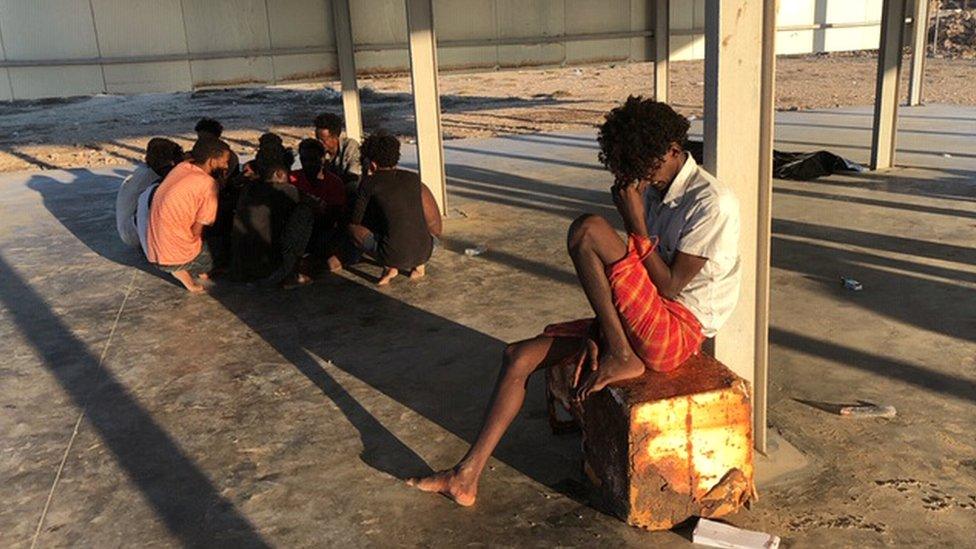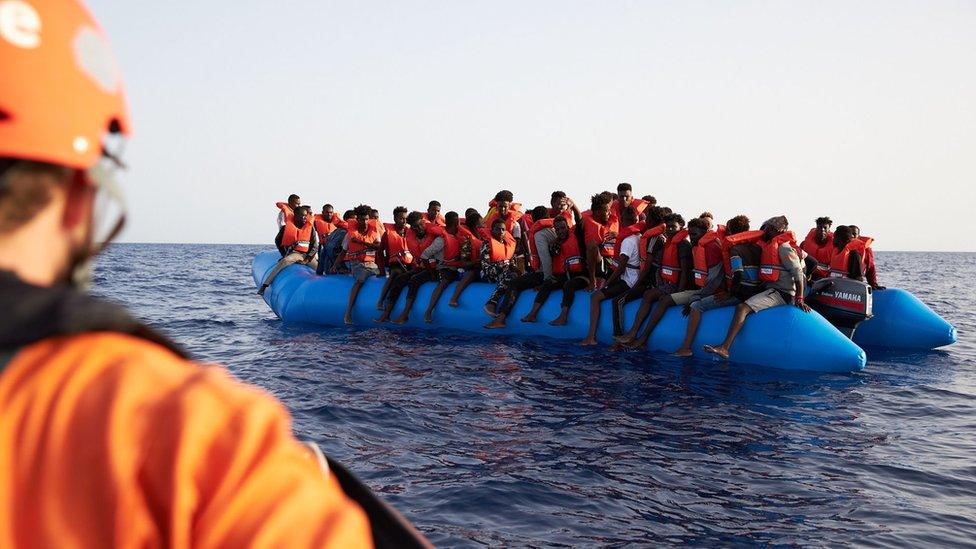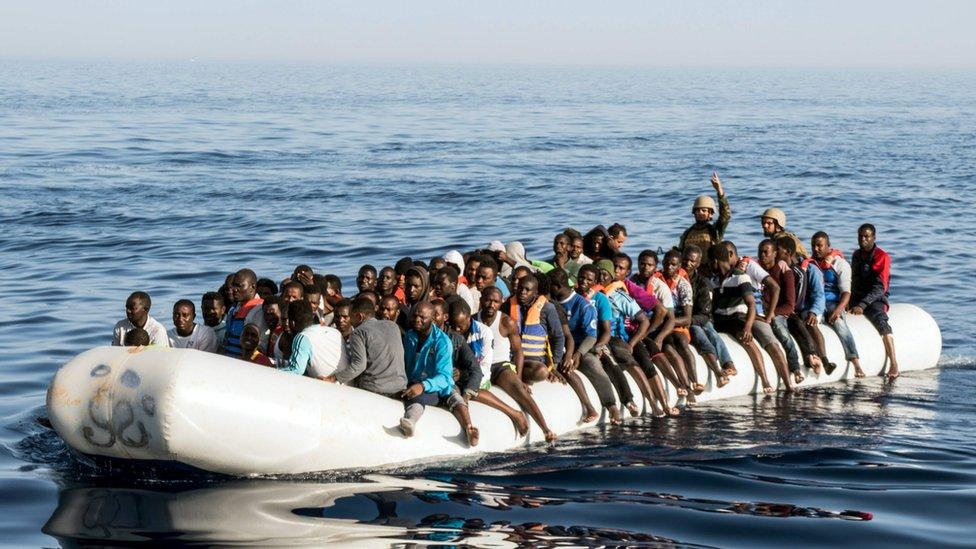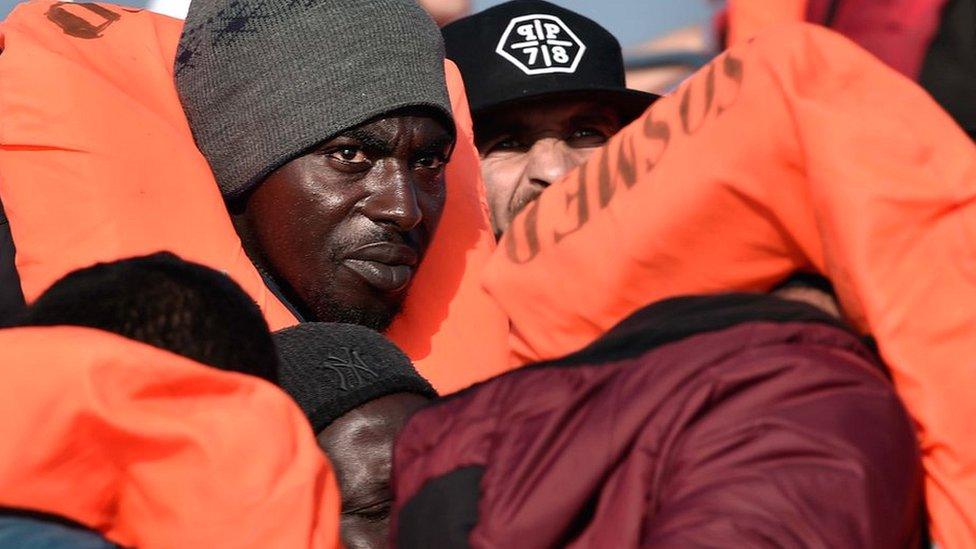Libya shipwreck: Scores of migrants feared drowned
- Published

The rescued migrants were returned to Libya
At least 115 people are missing, feared drowned, after a boat carrying migrants sank off the coast of Libya, a navy official says.
Gen Ayoub Kacem said 134 people were rescued and a body recovered.
The boat was carrying some 250 people from a number of African and Arab countries when it sank 8km (five miles) from the coast, Gen Kacem said.
The UN's refugee agency said it was the deadliest shipwreck in the Mediterranean so far this year.
Allow X content?
This article contains content provided by X. We ask for your permission before anything is loaded, as they may be using cookies and other technologies. You may want to read X’s cookie policy, external and privacy policy, external before accepting. To view this content choose ‘accept and continue’.

At least 65 migrants died in May after their boat capsized off the coast of Tunisia. Sixteen people survived.
A total of 164 people died on the route between Libya and Europe in the first four months of 2019, external, UNHCR figures show.

Migrants often make the perilous journey from Libya to Europe in overcrowded boats, like this one pictured in early July
The latest tragedy happened soon after the boat had set sail from the Libyan town of al Khoms, some 120km east of Tripoli.
The UNHCR earlier said it understood as many as 150 people were missing and 150 people had been rescued by local fishermen and returned to Libya by coastguards.
Charlie Yaxley of the UNHCR said he was concerned the survivors could be taken to two detention centres where "there's insufficient food, water, unsanitary conditions... [and] widespread reports of human rights violations taking place".
Earlier this month, 40 migrants were killed after a detention centre on the outskirts of Tripoli was hit in an air strike.
The country has been torn by violence and division since long-time ruler Muammar Gaddafi was deposed and killed in 2011.
Women and children are being held in camps close to fierce fighting in Libya's capital Tripoli
Thousands of migrants attempt to cross the Mediterranean to Europe every year, and Libya is a key departure point.
Those who make the journey often travel in poorly maintained and overcrowded ships, and many have died.
But since mid-2017, the number of migrant journeys has declined dramatically.
The decline is largely because Italy has engaged Libyan forces to stop migrants from setting off or return them to Libya if found at sea - a policy condemned by human rights organisations.
In the first three months of 2019, some 15,900 refugees and migrants arrived in Europe via Mediterranean routes - a 17% decrease on the same period in 2018.
- Published3 September 2018

- Published26 February 2020
